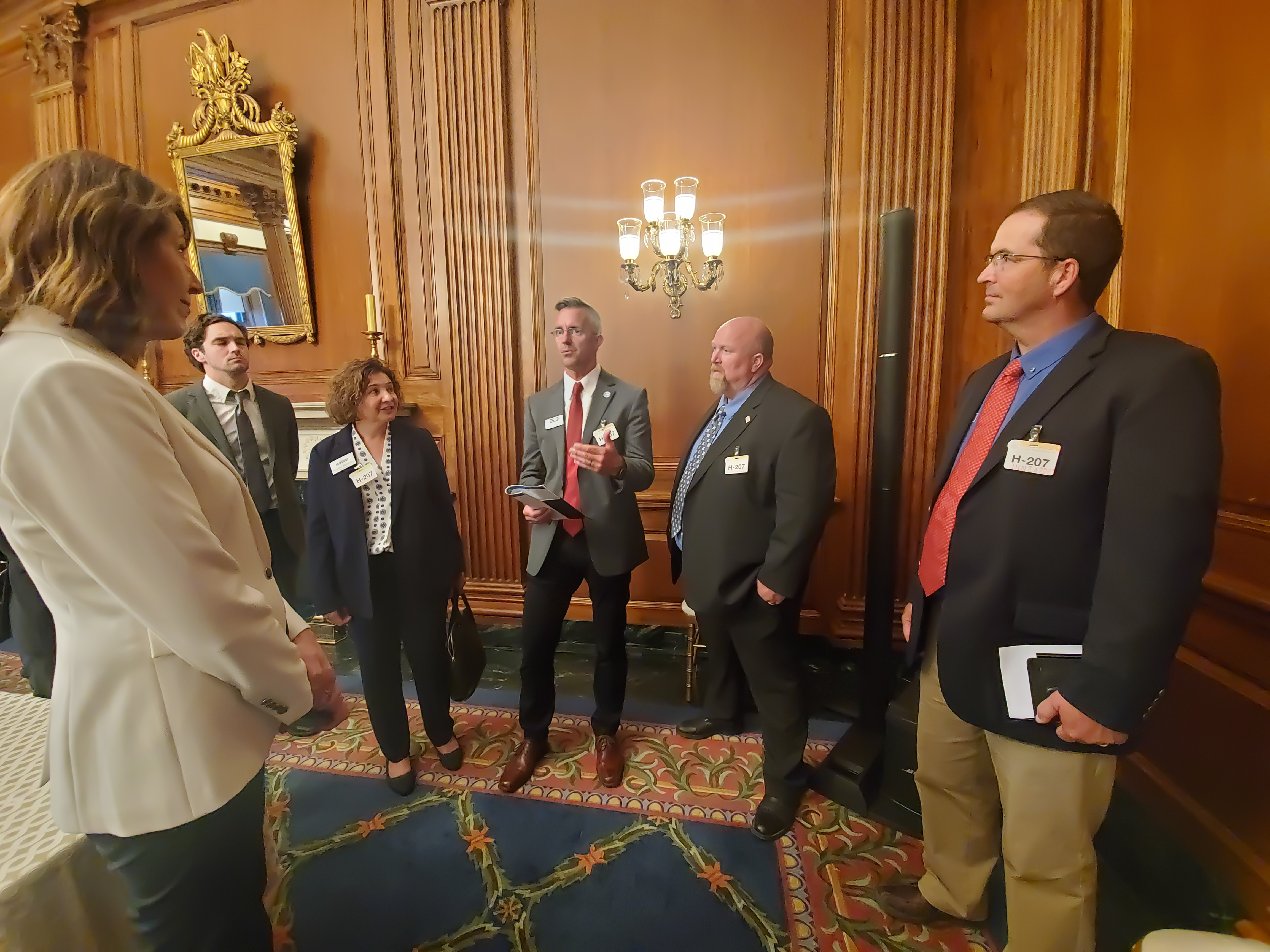
Iowa Soybean Association farmer leaders expressed their concerns, including proposed changes to the federal estate tax code, during a visit to Washington, D.C. (Photo: Bethany Baratta/Iowa Soybean Association)
ISA urges Senate, House, to maintain current estate tax code
September 9, 2021 | Bethany Baratta
As the House and Senate begin drafting legislation implementing President Joe Biden’s Build Back Better agenda as required under the recently adopted Fiscal Year 2022 Budget Resolution, the Iowa Soybean Association urges members of both chambers to maintain—not change—the current federal estate tax code.
The Iowa Soybean Association joined more than 300 organizations in the letter delivered to Senate Finance Committee Chairman Ron Wyden, House Ways and Means Committee Chairman Richard Neal, House Ways and Means Committee Ranking Member Mike Crapo, and House Ways and Means Committee Ranking Member Kevin Brady. The message: Do no harm.
“What we’re hearing from farmers is what we’re advocating for, which is to oppose any proposal that would effectively eliminate stepped-up basis and capital gains taxes,” said ISA Public Affairs Director Michael Dolch. “Other proposed changes would limit the ability of the farmer to utilize the 1031 like-kind exchange, which is key for them.”
There are more than four times as many farmers and ranchers aged 65 and older as there are those under the age of 35, according to the American Farm Bureau and the National Cattlemen’s Beef Association, who wrote the letter. These farmers own more than 40% percent of agricultural land in the United States, the letter states. It’s more reason to keep the existing code intact.
“With more than 370 million acres expected to change hands in the next two decades, the policies Congress enacts now will determine agricultural producers’ ability to secure affordable land to start or expand their operation,” the letter says.
Because assets in agriculture are typically held by one owner for several decades, resetting the basis on the value of the land, buildings, and livestock on the date of the owner’s death under a step-up in basis is important for surviving family members and business partners to ensure the future financial stability of the operation. Imposing a new capital gains tax at death would effectively establish a transfer tax with the potential to devastate our nation’s family-owned agribusinesses.
This was reiterated during ISA farmers’ visit to Capitol Hill in June.
Passage and implementation of changes to stepped-up basis would have serious consequences on family farms, ISA District 3 Director Suzanne Shirbroun told representatives in their D.C. offices. She’s the sixth generation on her family’s farm near Farmersburg.
“The seventh generation just graduated from college and is starting to move back to the farm. If we see changes to stepped-up basis, generation seven is not going to be there. We can’t afford it,” she told her elected representatives.
Though some in the administration and Congress have said exemptions in the bill would protect the legacy of family farms, Dolch said that might not necessarily be the case.
“The exemptions being discussed might not be enough or go far enough,” Dolch said. “They would create a bureaucratic quagmire within current IRS rules; nothing would be ironclad or certain regardless of how the rules are written.”
Key to maintaining a reasonable level of taxation for pass-through businesses like farms and ranches is continuation of the Sec. 199A business income deduction, ISA and others said in the letter.
Similarly, retaining like-kind exchanges, which allows businesses to buy and sell like assets without tax consequences, also helps farmers’ and ranchers’ cash flow and allows them to reinvest in their businesses.
The letter continued: “For agricultural producers, carrying on the legacy of our predecessors and setting the next generation up for success is critically important. It is with this in mind that we urge you to preserve the federal tax provisions that have long-supported American agriculture.”
Read the letter here: Tax Aggie Letter RE Budget Reconciliation 9.pdf
Back